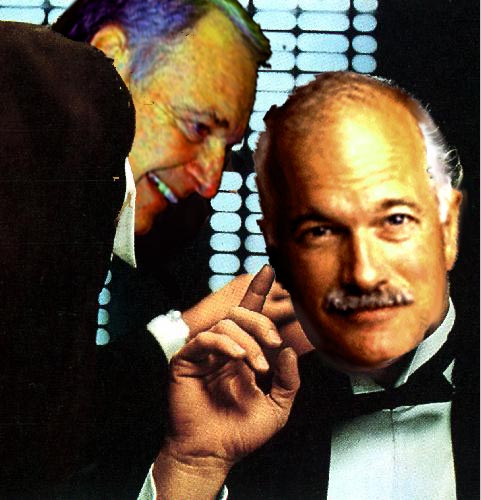The news is all over the blogosphere, of course: Ontario's premier
plans to ban religious arbitrations.
In a telephone interview with Canadian Press, McGuinty announced his government would move quickly to outlaw existing religious tribunals used for years by Christians and Jews under Ontario's Arbitration Act.
"I've come to the conclusion that the debate has gone on long enough," he said.
"There will be no Shariah law in Ontario. There will be no religious arbitration in Ontario. There will be one law for all Ontarians."
McGuinty said religious arbitrations "threaten our common ground," and promised his Liberal government would introduce legislation "as soon as possible" to outlaw them in Ontario.
"Ontarians will always have the right to seek advice from anyone in matters of family law, including religious advice," he said. "But no longer will religious arbitration be deciding matters of family law." I don't know about you, but this seems to have the air of a frustrated parent, beleaguered by yelling children, overplaying the punishment. ("That's ENOUGH! NEITHER of you get the toy!") He has, in effect, used a sledge hammer in calling for the ban of religious arbitrations when all he needed was a fly swatter to deal specifically with Sharia.
Let's make things clear. The Ontario government does NOT have the power to ban a religious arbitration from taking place. Never did, never will. If two parties agree to have a dispute mediated by a rabbi, a curate or an imam, the OPP cannot stop it, cannot arrest the arbiter or the two aggrieved parties. If they tried to do that, religious practitioners could take them to court and get their actions declared unconstitutional because it interferes with religious expression. Not to mention freedom of association.
All the Ontario government can do is declare that the arbiter's decision does not have the force of law. In other words, if one of the agreed parties is not happy with the decision, it can be appealed in a civil court.
As the law currently stands, of course, the arbiter's decision DOES have the force of law. But even if that force were removed, the arbiter's reasoning for his/her decision cannot be disregarded by the civil court, who at the very least would want to know why the aggrieved party was unhappy with the decision.
Also, if the dispute went into court, a common law principle would come into play. If two parties agreed to have a judgment by a third party, is there not a contract implied between all three parties? And if the third party has rendered a decision that does not contradict the common law, is it still not valid despite not being officially approved by the provincial government?
Now I'm not a lawyer, so I could be wrong on this. But it seems to me that arbiter's decisions aren't
really lawmaking on the same level as court decisions, because they're on a case-by-case basis and there are always extenuating circumstances that make each case unique. (The fact that, by definition, the arbiter is not IN court adds some weight to this principle.)
It occurs to me that Premier McGuinty, contrary to his assertions, really hasn't thought these things through. What he
could have done was permit Sharia, but with the provision that if the arbiter applied a Sharia principle that contravened Ontario human rights law, the decision could be invalidated on appeal. That idea could apply to almost any religious or other private arbitration with very little argument except from religious extremists.
But no. McGuinty's clumsy attempt to extinguish the passion over the Sharia controversy has instead (if read in a certain way) turned into a declaration of war against the role of religion in society. And it's not a battle that he can win.
UPDATE (16h32 12 Sep): Saffiyah has a posting up on Islamic arbitration and its application that puts the situation into a better perspective. It's worthy checking out.


















